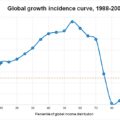Future Prospects for a New “Rise and Fall of the Great Powers” Can Be Seen From the Viewpoint of Demographics
Prediction for demographics and the course of direction of hegemons

Jimbo Ken, Professor, Keio University
Jimbo Ken: Long-term prediction of the future beyond thirty years often fails because the reality encounters too many unknowns. Demographics is believed to be the exception, as its predictability has been relatively high. Let’s begin with this premise.
Currently, the global population is about 7.7 billion. According to population projections by the United Nations, the global population is projected to rise sharply to 9.7 billion by 2050. The increase curve will become gentle and gradual beyond 2050, with the global population projected to hit 10.9 billion in 2100. In addition, increased populations are unevenly distributed in South Asia and the Sub-Saharan African region. Conversely, most developed countries will not see their populations increase, but will enter a rapidly aging society.
Based on these projections, our long-term strategy often suggests Africa is the “last frontier,” where the production-age population is booming and the market potential is growing. On the other hand, alarmists have pointed out that risks will arise from growing poverty and environmental damage due to overpopulation, the exhaustion of resources and people who cannot settle being forced to migrate.
According to Empty Planet: The Shock of Global Population Decline by Darrel Bricker and John Ibbitson published in February 2019, however, the world will enter a depopulation phase at an even quicker pace than the UN has projected, and this trend will be irreversible.
This can be explained on the basis of two reasons. One is that knowledge-intensive human resources must be fostered because new industries will not be simply labor-intensive. This is why it is better to make intensive educational investments in one or two children, rather than raising many children.
The other is women’s self-reliance. For example, the total fertility rate (TFR) in the Philippines declined from 3.4 to 2.6 in the last decade. This is closely associated with the spread and permeation of education.
When you envisage such a population curve, you must conclude that the fruits of growth and their dark side will be produced much more quickly than ever predicted before.

Miyake Kunihiko, Research Director, the Canon Institute for Global Studies (CIGS)
Miyake Kunihiko: Global demographics is important. But the four factors of territory, population, resources and military might, as well as population, are key points in terms of the rivalry for hegemony among major powers and security.
Looking at the global state of affairs from this perspective, the current world Major League consists of the United States, China and Russia, and the Minor League comprises Japan and Europe.
Looking at future prospects by country, the United States will not see its population decrease and will see an inflow of ambitious, excellent human resources from around the world in turn. A population of just 300 million exists on a continent with its huge amount of resources. As long as the era of national sovereignty continues, I don’t believe that America’s power will decline.
Russia faces the beginning of the decline of its population, which indicates that the country may fall in the future. But Russia, with its vast territory, rich resources and enormous military might, remains in the Big League, although it is struggling with a smaller chance of winning.
Regarding military might, it is necessary to examine the extent to which a country seeks to fulfill its military intentions as well as its military capabilities. Military capabilities increase as the population grows. But as artificial intelligence progresses, populations may not always be a crucial issue. Of course, gaps in ability will ultimately emerge between a country that still has a population of hundreds of millions more even after losing 100 million and a country that is not in this position.
In addition, national military intentions are crucial. Given Russia’s involvement in Ukraine and the US presidential election, its military intentions appear to be even stronger than those of China.
The population of China is by far the most immense in the world, but it will begin to decrease in the future. The country enjoys its vast territory and economic power, but it is disadvantaged in terms of a decisive lack of resources.
Certainly, Japan and Europe face depopulation and also have poor resources. They don’t have much in the way of military might either, so they cannot join the Major League.
The US overtakes China again
Jimbo: The US National Security Strategy (NSS) and the National Defense Authorization Act (NDAA) declare that the United States pursues strategic competition with Russia and China. This doctrine is premised on the fear of decline, whereby US supremacy encompassing economic, technological and military power is contested by the rise of China.
The United States is being caught up with by China and may be overtaken in terms of nominal GDP by around the late 2020s.
Miyake: China is now at its peak, I think. This peak may last for the next ten to fifteen years. The trend of its population aging beyond that shows that the country will not grow as the United States does.
Jimbo: I also think that China will enter a prolonged period of sluggish growth after peaking by catching up with the United States. This is because as the working age population decreases, population aging will accelerate rapidly, which leads to the inflation of debt due to the increase in medical and social security expenditure.
On the other hand, the United States is an exception in the demographics of advanced countries facing declining birthrates and population aging. The trend of declining fertility rates is also recognizable in the United States. However, the population including immigrants will continue to increase. According to a report released by the Japan Center for Economic Research (JCER), the United States, which has been overtaken in terms of gross domestic product (GDP) by China, will overtake that country again in the long term.
I think that the United States will continue to enjoy its supremacy with regard to military might. But China may go as far as to obtain the capability to rebuff or surpass US military might, at least on the periphery of it and within a certain range of its sphere.
Accordingly, the current US strategic competition can be described as whether the country can maintain the world order based on free and open rules until around the mid-2030s.
Miyake: I think so, too. The United States is said to be facing a decline in its national power. But this simply means a decline in the capabilities of the politicians who should make good use of the national power.
Now let me consider how what we now call “developing countries” will proceed from now on.
One should be cautious about India with its large population, large territories and large resources. But how will it retain its military might? I am skeptical about whether the country will vie for global hegemony. Both Russia and China are authoritarian states that place their people under tight control and attempt to realize their national intentions by force. But India, with its population of 1.3 billion and hundreds of languages, manages to run a democracy and has created a realm on its subcontinent.
Will such a country scramble for hegemony with a strong sense of national purpose? I can’t imagine India climbing to great power status with strong self-assertion.
Jimbo: Neither can I. India is such a proud country that it takes a unique stance on the international order. It is not part of the framework of the Treaty on the Non-Proliferation of Nuclear Weapons (NPT). Although New Delhi actively engages with a certain number of areas, including Seychelles, Maldives, Sri Lanka and Madagascar, and engages in helping stabilize the order in the Indian Ocean, I don’t think that it will be a major player in the Pacific Ocean or the South China Sea.
Miyake: I would speculate that India has no intention of expanding the Hindu world to the entire world.
The next powers begin to gain confidence
Jimbo: Beyond India, Indonesia and Nigeria are among the next powers that will continue to enjoy growing populations and the potential for economic growth in the next twenty to thirty years.
Indonesia was in a terrible mess at the time of the Asian Financial Crisis in the 1990s and amid the confusion in the aftermath of the crisis, and all it could do was to cement a national identity of its own. But following continued economic growth and the experience of democratization, the country is gaining the confidence to make itself a great power. Indonesia must take the leading role in driving economic growth in the Indian Ocean and bear responsibility for it as a member of the G20 as well as the Association of Southeast Asian Nations (ASEAN). Undoubtedly, Indonesia has the unique concept of becoming a regional power to that end.
Miyake: I think that Indonesians have had a change in awareness, with their market with its population of 250 million beginning to run well.
Iran and Turkey are also on my mind somewhat. Iran enjoys a population of 80 million and quite a few resources as well. It also has overwhelming power in the Islamic world. Turkey is a former Major Leaguer.
Jimbo: It is important for Japan to make the utmost efforts to ensure that these rising next powers become effective partners of Japan. In addition, it is also important for Japan to make the regional order desirable to itself through such new partnerships. Partnership strategy is not only about expanding friendly relations; it is about navigating rising powers to be responsible players.
Miyake: The key to this is the sea. From now on, Japan’s sea lane will expand from the Arabian Sea to the Gulf of Persia. Each of the countries connected to the route, apart from India, gains similar benefits. Among others, Indonesia is a maritime nation and a nation that can share interests with Japan in the medium and long term.
Jimbo: I am sure that countries that can incorporate those nations into their own diplomatic and security policy portfolio will gain an advantage in the years ahead.
On the other hand, if the United States sees populism rise more strongly than at present, you can’t expect leadership in terms of providing the world order and global public goods from it as was once the case.
The United States as a role model is retreating from the world and moving in a direction of forcing its allies to share the burden in turn, even as both Japan and Europe are becoming less vigorous. This mismatched situation will be a key factor that will cause a crisis to occur to the United States and its allies, I believe.
The Japan-US alliance in an era of depopulation
Miyake: Regarding the Japan-US alliance, not only Japan’s depopulation but also Japan’s geopolitical location and its status as a maritime nation are key points.
The principle objective of the Japan-US alliance was once to help stabilize the Korean Peninsula and protect Taiwan. But the focus of the alliance is currently shifting to the global deterrence of China’s advances, including into the Indian Ocean and the Middle East. For the United States to counter China’s maritime power, a presence is crucial in the Western Pacific. The United States needs, in the true sense of the word, an ally that can virtually maintain the United States Seventh Fleet, supply the United States Seventh Fleet with the necessary supplies and provide support including weapons and ammunition depending on the circumstances. Japan is the only country that can do this.
If Japan can maintain its technological level for this purpose, even if its population decreases, I don’t think that it will directly affect the Japan-US alliance. To put it another way, if Japan’s technological level declines or Japan loses its capability to maintain the United States Seventh Fleet, I think that Japan’s value to the United States will change significantly.
Jimbo: Maintaining readiness of the Japanese Self-Defense Forces (SDF) under the aging society and extremely low birthrate must be regarded as a serious problem. The quota of applications to the SDF is about 250,000, but the actual vacancies filled are only 90% of capacity. The situation is particularly serious with labor-intensive military categories like the Ground Self-Defense Force (GSDF). Despite an increasing number of missions, it is becoming more difficult to recruit multi-talented human resources who can handle them.
To resolve these problems, an extension of the retirement age is a conceivable option. A second option is to reorganize the SDF from a labor-intensive structure to a technology-intensive structure by integrating the SDF or drastically altering the personnel proportions of the GSDF, the MSDF and the ASDF. This means enhancing multi-domains and building a system of qualitatively supplementing the decrease in personnel. A third option is to dramatically introduce robotics and autonomous defense systems and equipment. I think it is necessary to have as many automated domains as possible and replace human operations with autonomous systems with an innovative concept based on concentrating resources in core areas.
Miyake: Depopulation results in growth in the value of one soldier. In the distant past, we saw the simplified discussion that China could wage war more easily because men outnumber women in that country. But how will China wage war now on the back of its one-child policy? If the army enters into close combat, it will produce heavy casualties. That is why it can’t do that.
In response to this situation, militaries around the world have begun to apply artificial intelligence and other unmanned technologies to their systems. But many Japanese argue that the military use of AI is totally unacceptable. Although they are thinking of improving productivity and dealing with manpower shortages, they don’t discuss AI from the viewpoint of building up a military deterrent. The discussions about introducing unmanned technologies still have a long way to go, but this is a pressing issue that needs to be tackled immediately if you take a hard look at what things will be like thirty years from now.
The possibility of global currency
Q: Some argue that it is more advantageous under authoritarian regimes like China than in the United States to gather big data when assessing China’s power. What do you think of this?
Miyake: I also thought that it was more advantageous to gather big data in countries under centralized regimes like China. But I’ve only recently started to change my mind because I heard someone say that putting restrictions on freedom to control the free flow of information might have a negative impact on the formation of big data.
In whatever way the Chinese government introduces AI technologies, they are merely data gathered by force. In contrast, an accumulation of data provided by users of their own accord by creating a platform that can provide data that users want will surely be useful as big data. I don’t think that things will last in an overwhelmingly advantageous way for China in the long term.
Jimbo: In October 2019, Mark Zuckerberg, the founder of Facebook, testified to the US Congress about Libra (digital currency). With Facebook under increasingly severe criticism, Zuckerberg said, “Unless we start providing services, China will launch the digital renminbi.”
Libra, which involves distributing new exchange value via blockchain, is a payment infrastructure that can be obtained even by people without a bank account as an exchange value. Because it is a global currency for Facebook users, it can change the ideas behind financial macro-control and foreign exchange and bring significant changes to the credit and insurance systems. If Facebook withdraws from this competition, there is no doubt that China will cut in. It is important to be concerned about financial stability and money laundering, but I have the feeling that the financial authorities are slightly inflexible.
Miyake: I know that my way of thinking will be regarded as obsolete, but if digital currencies like Libra come into being, central banks and their monetary policies will no longer make any sense. Current monetary policies have their limits, but they just barely control new economic phenomena. At least as long as a sovereign state is a player in international politics, I don’t think that it will ever give up its monetary policy.
If Beijing attempts to rule global monetary policies, all other countries will reject it.
Jimbo: Since unlike Libra, the digital renminbi is issued by the People’s Bank of China, it will first prevail among banks and settlement companies within the Chinese bloc. If the digital renminbi later expands into working together with international remittances, financial investments and electronic payments, it has the potential for greater global convenience.
Consequently, Libra threw down a challenge against the states. For my part, I wanted to see the global spread of Libra, but I should point out that the walls of sovereign states are high at the present time.
No successful immigration policy ever
Miyake: Let me get back to the story of the global population and economic development. The Islamic world will see a continued increase in population. But it is another thing whether regions where populations are increasing will be able to achieve economic development and modernization. The democratization of Lebanon and Egypt receded from its level for a while in the past, and the situation is uncertain in Tunisia as well.
I’m not sure whether the nonexistence of modernization leads to an increase in the population, or whether overpopulation leads to the nonexistence of modernization. But if a civil society remains undeveloped and self-governance capabilities remain insufficient despite growing populations, this will lead to totally different standards of living in the north and south of the Mediterranean, which will create potential pressures on migrants in Europe.
Europe has accepted immigrants since the 1960s and 1970s to compensate for labor shortages. But in conclusion, I should say that there have never been any successful cases of immigration policy.
Jimbo: The free movement of people and a common labor market, which constitute the foundations of European integration, significantly increased the rights of EU citizens. Because of a change in demographics amid the inflow of immigrants and refugees, however, states’ counterattacks are now beginning.
American demographics shows an increase in the percentages of Hispanics and Asians in the population structure and a noticeable decrease in the percentage of whites. The United States is fated to see an increase in population in sync with a change in its population structure.
Tightening border controls between countries where populations are growing and countries that are declining to make movements harder will naturally lead to frictions, which may end up sowing the seeds of a new conflict and creating the culprit of poverty. I have the feeling that the adjustment function of demographics, including these issues, is again going in a strong direction of being restricted by the walls of the nation state.
Miyake: We must think about what Japan can learn from the European experiences of immigration, especially in terms of how the situation is progressing in developing countries and Japan’s future.
To put it in terms that should avoid inviting misunderstanding, I don’t mean that accepting immigrants itself is a problem. In my opinion, Japan must coexist with foreigners in some way or other for its continued national survival. To accept a workforce from overseas, help them become accustomed to Japanese culture and coexist with them amid the trend of depopulation and labor shortages or to adopt an immigration policy with the good sense of creating a new Japanese culture together, I think it is necessary to carry out policies that can minimize the negative factors.
The revised Immigration Control and Refugee Recognition Act, which was enacted in April 2019, says, “This law is not intended for an immigration policy but for an increasing number of visas issued to foreign workers.” This is not a problem in terms of domestic politics, but it is substantially an immigration policy. It appears that there were insufficient deliberations and simulations, however.
This is the reason why Japan should learn many lessons from Europe. Foreigners who enter Japan are different from those who travel to Europe, and Japan has its own unique system for accepting them and its own unique way of coexisting with them. I think that we must undertake comprehensive consideration, including this.
Jimbo: I am not familiar with the immigration issue, but I think that Japan should accept highly skilled foreign professionals, of course. To this end, Japan needs to create a better working environment, such as high salaries and low taxes, a good living environment, a good educational environment for children, an open society and security and safety. Treatment and taxation, in particular, are crucial. Companies need to establish a system for accepting good human resources, including corporate taxes.
Meanwhile, clearly, even amateur thinking shows that there are some areas in which labor shortages have arisen in the category of unskilled labor. Care workers are in absolute short supply in the areas of care and nursing in an aging society. There are also shortages of nursery-school teachers who engage in preschool education and manpower in the construction, convenience store and food service industries. In addition, local regions have many industries that cannot be handled without foreigners, including agriculture and fishery, and this is a critical issue.
In this context, to think about this a little more positively, the acceptance of foreigners and women’s empowerment can be linked. In Japan, there are too many cases in which excellent women leave companies for their families after getting married and having babies. Undoubtedly, this has negative effects on economic development. It is important to effectively create an environment in which women can work well in the office.
To this end, it is conceivable to launch the homemaker service business in earnest to support women’s empowerment, as in Singapore and Hong Kong. Japan should consider not only supplementing the labor sectors facing labor shortages with foreigners but also helping foreigners work to make use of Japanese human resources who cannot go out into the labor sector.
Discussion about accepting immigrants with a hard look at the future
Miyake: If the lawmakers discuss this issue in the Diet, we are certain to see every type of view ranging from the complete rejection of immigrants to a complete agreement to immigrants. Because each of these discussions has its own advantages and disadvantages, they will probably go out of control. In Japan, there is not yet any field for having calm discussions about this issue.
To speak about my opinion based on this, when we think about Japanese history, we can see that people from a range of countries always came and created cultures. We are a people that was capable of creating a common culture by accepting, digesting and cultivating a great variety of cultures. We should first acknowledge that it is now time for the Japanese people to accept this and do the same as their ancestors.
In most cases, however, we accepted people from neighboring countries. People coming from the other side of the planet and people with other religions coming, as occurs in the present day, are a new phenomenon. I don’t believe, however, that Japan is such a discriminatory nation.
Jimbo: When I was a high school student, I was also totally in favor of multicultural symbiosis, thinking that society was experiencing a trend toward gradual diversification. But I have now recognized that borders play a crucial role in macroscopic changes in global demographics and the movement of the labor force there.
Miyake: If people with different cultures come into our own culture, they can’t be treated in exactly the same way. Seen from outside, this can be regarded as a form of discrimination. Every country has its discrimination. In the United States, they discuss the extent to which they can reduce the negative effects of discrimination based on the premise that discrimination exists. Unless Japan can discuss how to minimize the negative effects of discrimination based on the premise that discrimination exists, real discrimination will never be eradicated.
Jimbo: In Japan, people often create a situation gradually without having adequate discussions during the policymaking process and accept it with reluctance.
Miyake: This issue should not be discussed in imitation of other countries. You, Professor Jimbo, argued earlier that the TFR is declining in the Philippines. In fact, however, the TFR is declining in Vietnam and Thailand as well. You can hardly continue to say that although both taxes and living expenses are high in Japan, it is able to attract good human resources from Southeast Asia because it can pay higher salaries.
South Korea is facing depopulation like Japan, and China will experience the same situation in due course. With an intense race in terms of vying to obtain foreign human resources already underway, Japanese domestic discussions are too optimistic and nonchalant. If Japan is too late to deal with the situation and fails to secure excellent human resources, it will just end up creating a problem for the next thirty to fifty years.
Translated from “Aratanaru ‘taikoku no kobo’ wa jinkodotai kara tenbodekiru — Beikoku ga Chugoku wo saigyakuten, Nekusuto taikoku ga taito (Future Prospects for a New “Rise and Fall of the Great Powers” Can Be Seen From the Viewpoint of Demographics: The United States Overtakes China Again and the Next Powers Rise),” Chuokoron, January 2020, pp. 38-47. (Courtesy of Chuo Koron Shinsha) [February 2020]
Keywords
- Miyake Kunihiko
- Canon Institute for Global Studies
- Jimbo Ken
- great powers
- rising powers
- hegemons
- global demographics
- population
- territory
- resources
- military might
- Japan-US alliance
- global currency
- immigration policy



